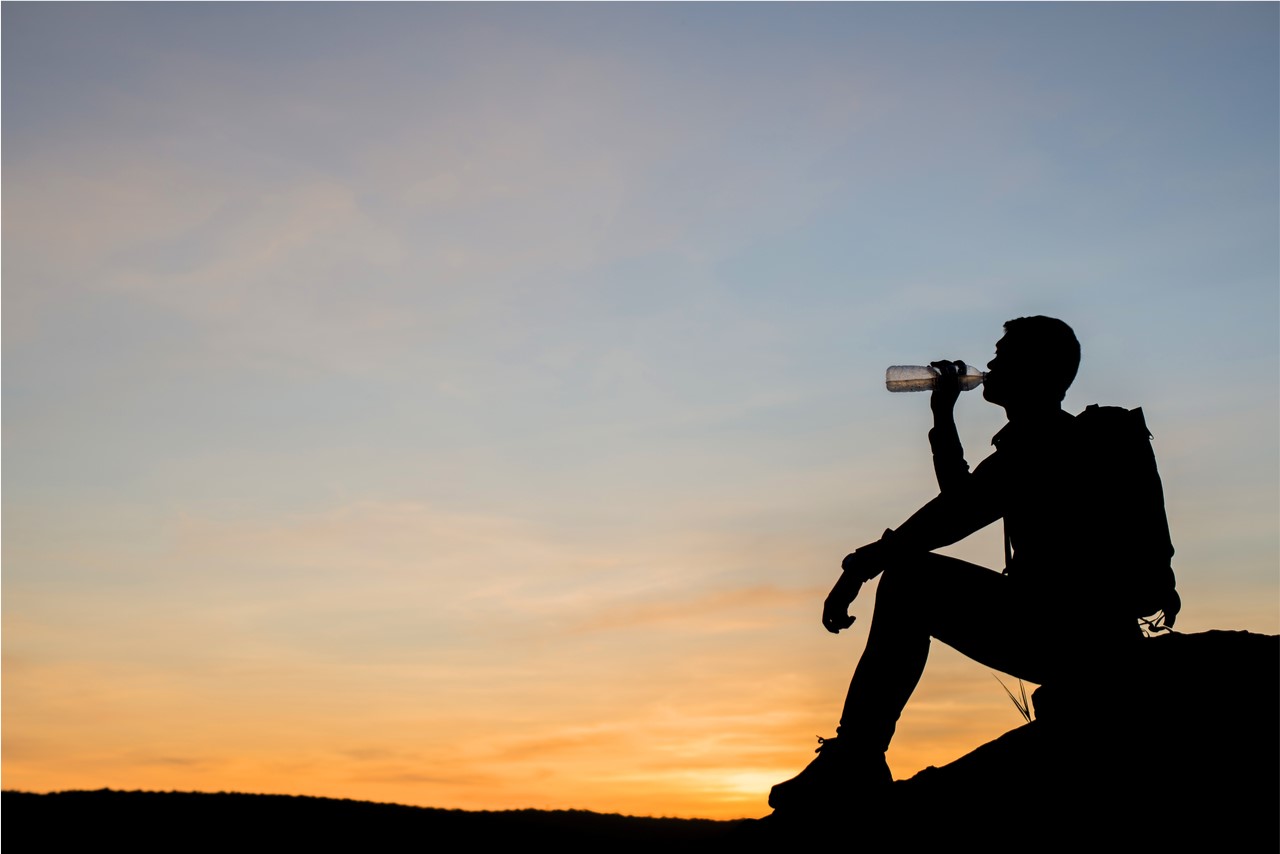Congratulations! You have completed the first step to becoming healthier! Deciding to make a change can be one of the hardest but most rewarding things you will do in your life. Taking small manageable steps is the best way to ensure success. So double knot your Nike’s and grab your water bottle, as we reveal some helpful tips for becoming a healthier you.
Purge Your Pantry and Refrigerator
It’s no secret that if you don’t have something on hand, you are less likely to turn to it in times of weakness. So, toss out those sweet treats, processed packages, refined grains and fill your house with fruits, veggies, whole grains and clean meat. Canned beans, 100% whole wheat flour, plain yogurt, nuts and honey are great staples to have on hand. Remember next time you go to the store, plan your meals in advance so you don’t rely on quick fix dinners, if it’s not healthy don’t buy it!
Carry Around a Water Bottle
Ever see that buff guy at the gym with a gallon of water by his side and you can’t help but roll your eyes. The thing is, he may be on to something, studies show that drinking water can have positive effects on weight loss. Drinking water throughout the day can increase the rate you burn calories when you are sitting or are at rest; as much as 24-30% per 60 minutes (1,2,3). Not only that, but drinking water has also been shown to reduce appetite in older adults (4). People who drink mostly water as their fluid of choice, tend to consume about 200 less calories then if they didn’t (5). Water also has amazing impact on your skin, energy, immunity and flushing out toxins. So, fill up your water bottle next time you hit the road.
Get Up and Move
As I am sure most of you know exercise holds a host of benefits. But did you know, it makes you feel happier, aids in weight loss, increases energy levels, improves memory, assists in relaxation and reduces your chances of developing a disease (6). Talk about a heavy hitter! Aim to get at least 150 minutes of moderate aerobic activity or 75 minutes of vigorous aerobic activity a week, or a combination of moderate and vigorous activity. Aerobic exercise looks like walking, running, dancing or biking. Lifting weights carry a multitude of benefits as well! Shoot for strength training exercises two times a week (6). Some people work better with a buddy, if that’s you try reaching out to a friend, try a class or join a Facebook group. Simply moving throughout the day can also have a positive impact on your health. Fidgeting burns calories, improves blood flow and reduces the increased risk of death that sitting can cause (8).
These simple tips are a great start to getting fit! Don’t forget to clean up, drink up and move for better health everyday!
Works Cited:
- Dennis, Elizabeth A. et al. “Water Consumption Increases Weight Loss During a Hypocaloric Diet Intervention in Middle-Aged and Older Adults.” Obesity (Silver Spring, Md.)2 (2010): 300–307. PMC. Web. 12 Oct. 2017.
- Michael Boschmann, Jochen Steiniger, Gabriele Franke, Andreas L. Birkenfeld, Friedrich C. Luft, Jens Jordan; Water Drinking Induces Thermogenesis through Osmosensitive Mechanisms, The Journal of Clinical Endocrinology & Metabolism, Volume 92, Issue 8, 1 August 2007, Pages 3334–3337, https://doi.org/10.1210/jc.2006-1438
- Michael Boschmann, Jochen Steiniger, Uta Hille, Jens Tank, Frauke Adams, Arya M. Sharma, Susanne Klaus, Friedrich C. Luft, Jens Jordan; Water-Induced Thermogenesis, The Journal of Clinical Endocrinology & Metabolism, Volume 88, Issue 12, 1 December 2003, Pages 6015–6019, https://doi.org/10.1210/jc.2003-030780
- Dennis, E. A., Dengo, A. L., Comber, D. L., Flack, K. D., Savla, J., Davy, K. P. and Davy, B. M. (2010), Water Consumption Increases Weight Loss During a Hypocaloric Diet Intervention in Middle-aged and Older Adults. Obesity, 18: 300–307. doi:10.1038/oby.2009.235
- Daniels, Melissa C., and Barry M. Popkin. “The Impact of Water Intake on Energy Intake and Weight Status: A Systematic Review.” Nutrition reviews 68.9 (2010): 505–521. PMC. Web. 12 Oct. 2017.
- Cooney GM, Dwan K, Greig CA, Lawlor DA, Rimer J, Waugh FR, McMurdo M, Mead GE. Exercise for depression. Cochrane Database of Systematic Reviews 2013, Issue 9. Art. No.: CD004366. DOI: 10.1002/14651858.CD004366.pub6.
- Mayo Clinic. (2017). How much exercise do you really need?. [online] Available at: https://www.mayoclinic.org/healthy-lifestyle/fitness/expert-answers/exercise/faq-20057916 [Accessed 13 Oct. 2017].
- (2017). 3 Reasons Why Fidgeting Is Actually Good For You. [online] Available at: https://www.prevention.com/health/benefits-of-fidgeting [Accessed 13 Oct. 2017].

